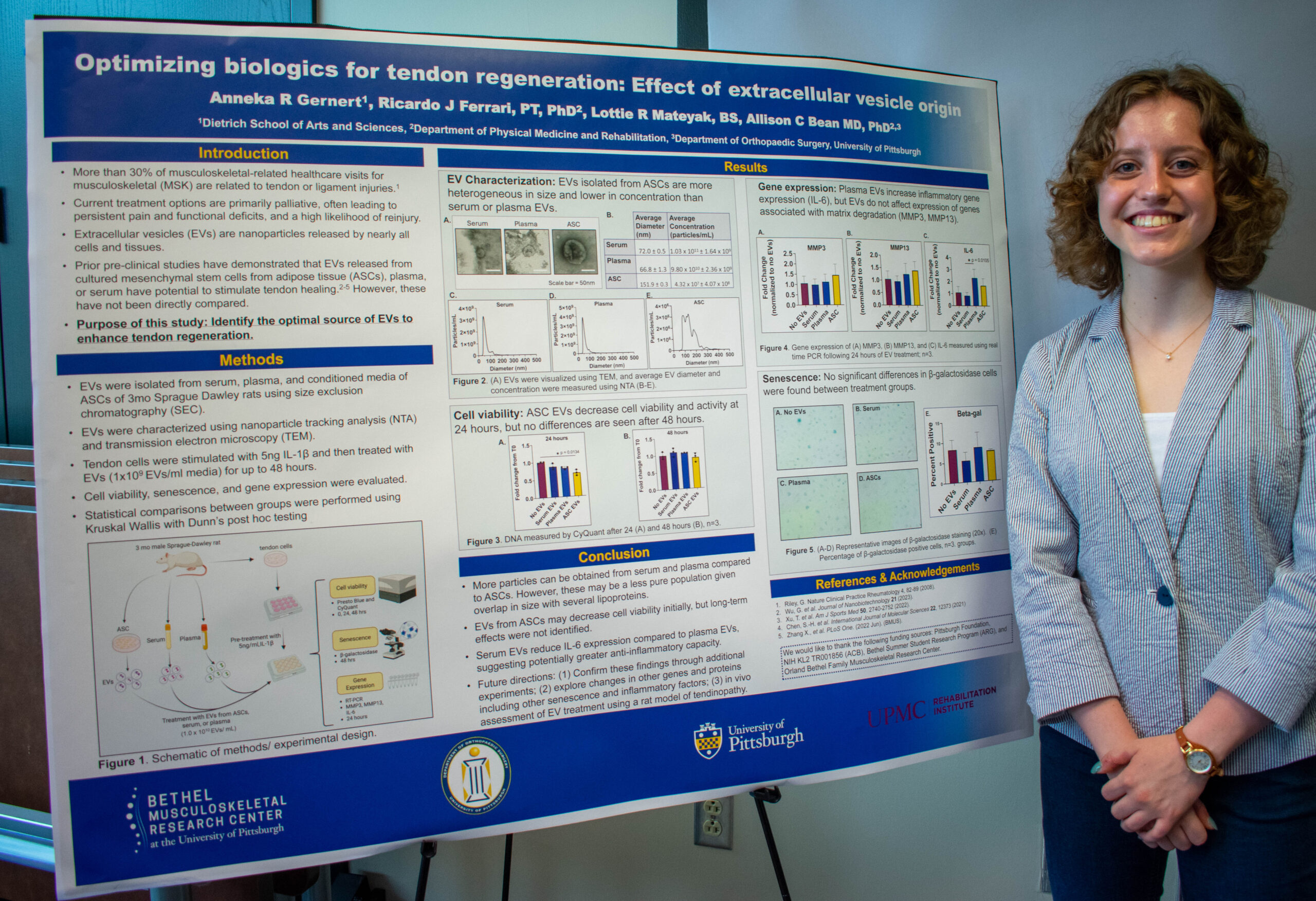The Orland Bethel Family Musculoskeletal Research Center (BMRC)launched its first-ever Summer Student Research Program (SSRP) in 2024, a competitive program designed to foster the next generation of musculoskeletal researchers.
The program was created to provide undergraduate and medical students with immersive research experiences so they can develop the skills necessary for successful careers in biomedical research.
“One of the main missions of BMRC is to safeguard the next generation of researchers, giving them the same opportunities that more established researchers have,” said Katie Morris, research communications specialist at BMRC.
Leading many of the efforts of the program’s development and coordination, including program curricula, are Allison Bean, MD, PhD, assistant professor of physical medicine and rehabilitation, and Laurie Dearolf, PhD, BMRC operations manager.
Structure and Goals of the Program
SSRP is a nine-week intensive program held on-site in Pittsburgh. It is open to students from any university in the United States, and the only requirement is the ability to be present in the lab throughout the duration of the program. In its inaugural year, the program welcomed five students, primarily from the University of Pittsburgh, with one participant from the University of Miami.
In addition to conducting original research, the students also cultivate essential skills for successful research careers. The program features weekly seminars that teach students how to critically evaluate journal articles, present research findings, and communicate their work effectively to both academic and lay audiences. They also learn how to keep a lab notebook, read a scientific paper, and give a research presentation.
“The program is about conducting hands-on research, but also about teaching them how to be a researcher and function successfully in that challenging world — how to talk about their research, network, and prepare for future opportunities in graduate school or medical school,” Morris said.
Each SSRP student is paired with a faculty mentor before the program begins, ensuring that the student’s research interests align with the lab’s ongoing work. Ideally, students identify their mentors and research tracks ahead of time, but BMRC also can help match accepted students based on their academic backgrounds and research interests.
This hands-on experience allows students to participate in meaningful research projects while also learning the behind-the-scenes fundamentals of collaboration and presenting one’s work.
Participants and Their Research
At the conclusion of the program, the participants present research posters summarizing their summer projects. Below is a brief overview of the students’ topics.
- Injection techniques for treatment of intervertebral disc degeneration
- The relationship between aging and osteoarthritis progression
- Osteosarcoma cells and their responses to drug treatments
- Different types of cells and their potential for promoting tendon healing
- Non-surgical treatments for lumbar spinal stenosis
Looking Ahead
The success of the inaugural SSRP has created the framework for future iterations of the program, with plans to expand in scope and possibly include outreach to high school students. BMRC aims to continue supporting young researchers by providing them with opportunities to work directly with faculty mentors on cutting-edge orthopaedic and musculoskeletal research.



